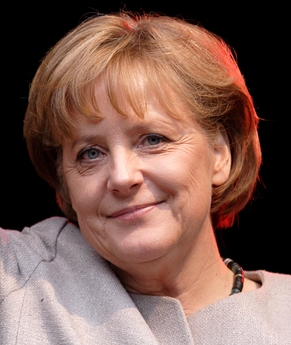Following the German general election of 27 September 2009, the new German government will be formed from the Christian Democratic Union/Christian Social Union of Bavaria parties (CDU/CSU) and the Free Democrats (FDP). NEI correspondent Carsten Salander outlines the new prospects for nuclear power in Germany.

The current federal chancellor Angela Merkel (CDU) has announced the intention to delay the formation of a new government until November 9, the 20th anniversary of the fall of the Berlin wall. Until then, the present government will be still formally in office. Last week was the last cabinet meeting in Berlin (on October 7), but as to my knowledge there were no energy items on the agenda. In fact until a new chancellor (Merkel) is formally elected by the new legislature, the Bundestag, and until she has then nominated new ministers, probably nothing of importance will happen.
Before the elections all three parties that will now form the new government had announced to vote for a life extension of the German nuclear power plants when they came into power. Now, the first discussions among energy politicians in these parties indicate that this might not be the case for all nuclear power plants. The four oldest '69 type BWRs, Brunsbüttel (KKB), Krümmel (KKK), Isar 1 (KKI 1) and Philippsburg 1 (KKP 1), have faced strong criticism. In fact, it may be only the newer reactors, and especially the PWRs, that could benefit from the prolongation. However, the chairmen of the four big utilities are demanding a life time extension for all 17 nuclear power plants. They seem to be prepared to deliver about half of their profits resulting from such a decision to the German government for research into renewables and radioactive waste disposal.
The German anti-coal environmental lobby supports the cause, because in their view nuclear plant life extension would help prevent construction of the 28 new coal fired plants currently being planned by German utilities. The federal office for the environment (UBA) issued a statement that nuclear power plant life time extension would result in massive over-capacity of electricity. It argued that therefore the new government should continue the energy policy as it has been with the decision for nuclear phase out, and also stop the construction of new coal power plants.
In spite of the government's decision not to build new nuclear power plants in Germany, the current (and probably also future) federal minister for economics, Karl-Theodor zu Guttenberg (CSU) spent EUR1.3 million on 1 October to join the Generation-4 nuclear reactor research project. He said that by joining the initiative the government would be able to evaluate the safety of nuclear power plants being built in neighbouring countries. German antinuclear associations judged the decision as a sign of the new government's intention to build new nuclear power plants in Germany and strongly criticised the decision.
At present [as of early October] no decision has been made about whether the new government will have an energy minister with responsibility from nuclear energy to biomass energy, whether energy will be the responsibility of the minister for economics, or whether the different energy areas will be split between different ministries, as it has been up until the present.
(In the present government the responsibility for energy lies in seven ministries: 1. ministry of economics: general energy questions and energy securement; 2. ministry of the environment: nuclear energy including reactor safety and renewables; 3. ministry of transport: energy for motor cars including hybrid and electric drives; 4. ministry of research: energy research and responsibility for research and research establishments; 5. ministry for defence: safety problems of energy; 6. ministry of agriculture: biomass energy; 7. states ministry of the chancellors' office: general energy problems.)
The ministry of the environment, headed up by Sigmar Gabriel (Social Democrats, or SPD), is mainly responsible for nuclear energy issues such as licensing and reactor safety. However, he always has to find agreement with the ministries of economics and agriculture. As soon as the new chancellor is elected by the Bundestag, Gabriel's responsibility ends. Although Gabriel lost 7% of the votes in his district, he was still directly elected for the new Bundestag. Moreover, Gabriel has been nominated to become chairman of the Social Democrat party, to be voted during its next party assembly mid-November at Dresden. Probably he will then turn the SPD toward the left to be able to cooperate with the left party Die Linke after the next general election in Germany in 2013.
Related ArticlesEDF wins partial approval to buy half of Constellation Nuclear World survey part 1: the Americas Unistar gets state approval for Calvert Cliffs Constellation reduces spending on Calvert Cliffs Constellation Energy turns back on Calvert Cliffs loan guarantee EDF beat to Constellation Maryland PSC slams "orchestrated parade" promising Calvert Cliffs 3




